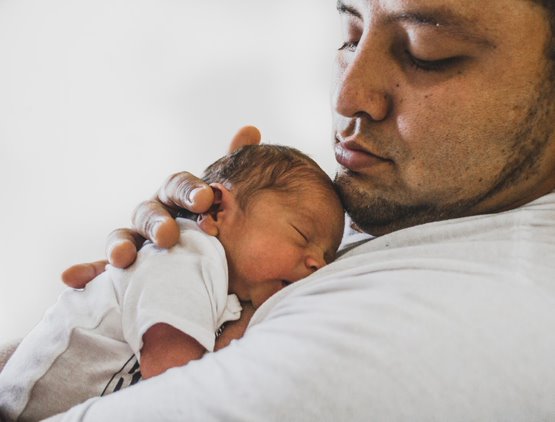All posts
New Baby, New Relationship Problems?
They tell you it’s going to be hard. They tell you about the sleepless nights, the spontaneous tears, and the guilt that you’re not doing it right, or not doing enough. But what about the relationship changes that a new baby can bring? Maybe you’re arguing more than ever. Maybe the romance seems out of […]


They tell you it’s going to be hard. They tell you about the sleepless nights, the spontaneous tears, and the guilt that you’re not doing it right, or not doing enough.
But what about the relationship changes that a new baby can bring?
Maybe you’re arguing more than ever. Maybe the romance seems out of reach. Or maybe you feel a distance between each other you’ve never felt before.
Every relationship changes after adding a baby to the equation. And while it might feel like things will never go back to the way they were, the good news is, it does get better.
If you’re experiencing these common relationship stresses after having a baby, please know that you’re not alone.
Communication Breakdown
Has your communication become transactional and all about baby? Missing the days of stimulating conversation and flirtatious banter?
As your days and nights revolve around feeding, changing, and consoling your new recruit, you probably don’t have the time or energy to focus on nurturing your relationship right now. This can make you feel disconnected and distant.
Try to find time each day to talk about the things you used to, keeping baby talk off the table. It doesn’t matter whether it’s idle gossip, politics, or your thoughts on the TV series you binge while you’re stuck under a cluster-feeding baby at 2am. Schedule this baby-free banter into your phone as a daily reminder if you have to.
Lack of Intimacy
Most new parents will experience a loss of sexual intimacy, with fantasies about sex being replaced with fantasies about sleep. There are several reasons why couples might feel their relationship has no room for romance after baby.
There’s the sleep deprivation thing, for a start. If you’re not sleeping in shifts and actually manage to jump in the sheets at the same time, you’re likely exhausted.
It can take months for new mums to recover after childbirth. And even once women have physically healed, they may feel ‘touched out’ from all the endless contact with bub, which can inhibit their desire to be intimate with a partner.
There are other ways to maintain intimacy and feel close to your partner, such as holding hands, cuddling, and looking into each other’s eyes. You could also up the words of affirmation in your relationship in place of physical touch, expressing romantic feelings with an “I love you” or an unprompted “You look great today”.
Division of Domestic Duties
Babies may be tiny, but they bring with them a big list of additional household chores. Sure, you did the laundry and dishes and vacuuming before, but they were never as urgent as they are with an infant.
The unequal division of domestic labour has long been a common issue among couples. It’s no secret women generally take on more than their fair share of the housework (even if they work the same amount of hours as their partner), but research shows this inequality gets worse after baby comes.
Both partners should work together to divide chores and childcare duties fairly. This would ideally be discussed and sorted before birth, but it’s never too late to sit down together and decide on a system that works for you both.
Financial Priorities
Raising a human is expensive. Initial big-ticket items like a bassinet, cot, car seat, pram, and change table quickly add up, and ongoing costs like nappies, food, medical expenses, and day care also take their toll.
Money is one of the biggest stressors for many couples. Research shows more than half (52%) of Aussie couples argue about money. It’s no surprise finances and who pays for what can cause tension between new parents who are adapting to living on one income and may not have the freedom to splurge on unnecessary items without a second thought.
This is why it’s a good idea to trial living on one income for a few months before baby comes to get used to living within your new means. A shared budget spreadsheet couldn’t hurt, either.
Opposing Parenting Styles
It’s hard to know how you’ll feel about sleep training, dummies, and discipline until you’re a parent making the big decisions.
Some first-time parents find they’re not as in sync with their partner’s parenting style as they thought they’d be. This can lead to some raised eyebrows and heated arguments.
While you may need to agree on some things for consistency’s sake, there are other times when you may need to relent control and bite your tongue. If the to-dos are getting ticked off and your little one is healthy and happy, it doesn’t always matter whether your partner is doing things the way you would or not.
Having a hard time? We offer counselling for individuals and couples to facilitate discussion and explore issues such as conflict, intimacy problems, parenting issues, and depression. Learn more and book an appointment here.
Relationships Australia provides more helpful advice for new parents in this tips sheet.
Back to all posts